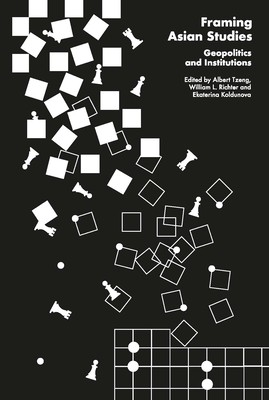
- We will send in 10–14 business days.
- Publisher: Iseas - Yusof Ishak Institute
- ISBN-10: 9814786306
- ISBN-13: 9789814786300
- Format: 15.2 x 22.9 x 1.6 cm, minkšti viršeliai
- Language: English
- SAVE -10% with code: EXTRA
Framing Asian Studies (e-book) (used book) | bookbook.eu
Reviews
Description
This book explores the interconnection between geopolitical context and the ways this context frames our knowledge about Asia, highlighting previously neglected cause-and-effect relations. It also examines how various knowledge institutions promote and shape Asian Studies. The authors seek to explain why Asian Studies and its subfields developed in the way they did, and what the implications of these transformations might be on intellectual and political understandings of Asia. The book not only builds on the current debates on the decolonization and de-imperialization of knowledge about Asia; it also proposes a more multifaceted view rather than just examining the impact of the West on the framing of Asian Studies.
EXTRA 10 % discount with code: EXTRA
The promotion ends in 23d.04:45:11
The discount code is valid when purchasing from 10 €. Discounts do not stack.
- Publisher: Iseas - Yusof Ishak Institute
- ISBN-10: 9814786306
- ISBN-13: 9789814786300
- Format: 15.2 x 22.9 x 1.6 cm, minkšti viršeliai
- Language: English English
This book explores the interconnection between geopolitical context and the ways this context frames our knowledge about Asia, highlighting previously neglected cause-and-effect relations. It also examines how various knowledge institutions promote and shape Asian Studies. The authors seek to explain why Asian Studies and its subfields developed in the way they did, and what the implications of these transformations might be on intellectual and political understandings of Asia. The book not only builds on the current debates on the decolonization and de-imperialization of knowledge about Asia; it also proposes a more multifaceted view rather than just examining the impact of the West on the framing of Asian Studies.


Reviews